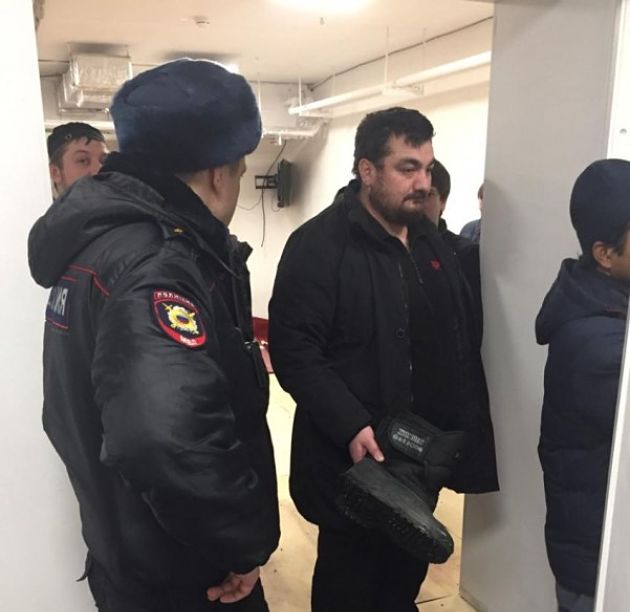On Fridays, according to the established tradition in Putin’s Russia, the security forces congratulate Muslims on their holiday. However, instead of hearing “Eid Mubarak,” the recipients are forced to hear something like “stand up,” “show your documents,” “hands against the wall,” etc. Of course, not all Muslims in Russia are subjected to this immediately, but rarely does a week pass without the parishioners of some mosque or Islamic center being “honored” with such a visit.
Today, visitors to the Cultural Center of the Peoples of the Caucasus “Heritage of the Ancestors” on Fermskaya Street in St. Petersburg were “lucky”. The security forces, in full compliance with the Yarovaya laws, decided that the Cultural Center of the Peoples of the Caucasus should not have a prayer room where its visitors gather for collective prayers. After all, the latter is already a religious and even missionary activity, which requires special registration. Now, in Putin’s Russia, it is forbidden to simply gather for collective prayer.
In addition, as part of the information support for the raid, the security forces spread through the media that “law enforcement agencies have received information about the presence of people involved in extremist activities at the events of the Cultural Center of the Peoples of the Caucasus”. The journalists who spread this information showed little interest in what this mysterious phrase meant. And they were wrong – because if someone is involved in “extremist activities”, which, according to Russian law, should be determined by a court, then it is their problem and, theoretically, the security forces should suppress this activity. As for the institutions visited by different people, they are not obliged to find out what each of them is involved in and are only responsible for their own activities.
Moreover, it is interesting in this situation that this time the raid of the security forces was carried out in the center of the so-called Habasites, who are not only loyal to the Russian authorities, but also approve of such actions against their Muslim opponents. In particular, it should be recalled that not long ago the informal leader of the Hashites in the post-Soviet space, the so-called Mufti of Ukraine, Ahmed Tamim, incited his authorities to fight against the spread of “extremism” in the Muslim community in a manner similar to that of Russia. As they say, sometimes dreams come true, but not the way we want them to – apparently, instead of the Ukrainian security forces responding to Tamim’s call, the Russian ones decided to take action.

